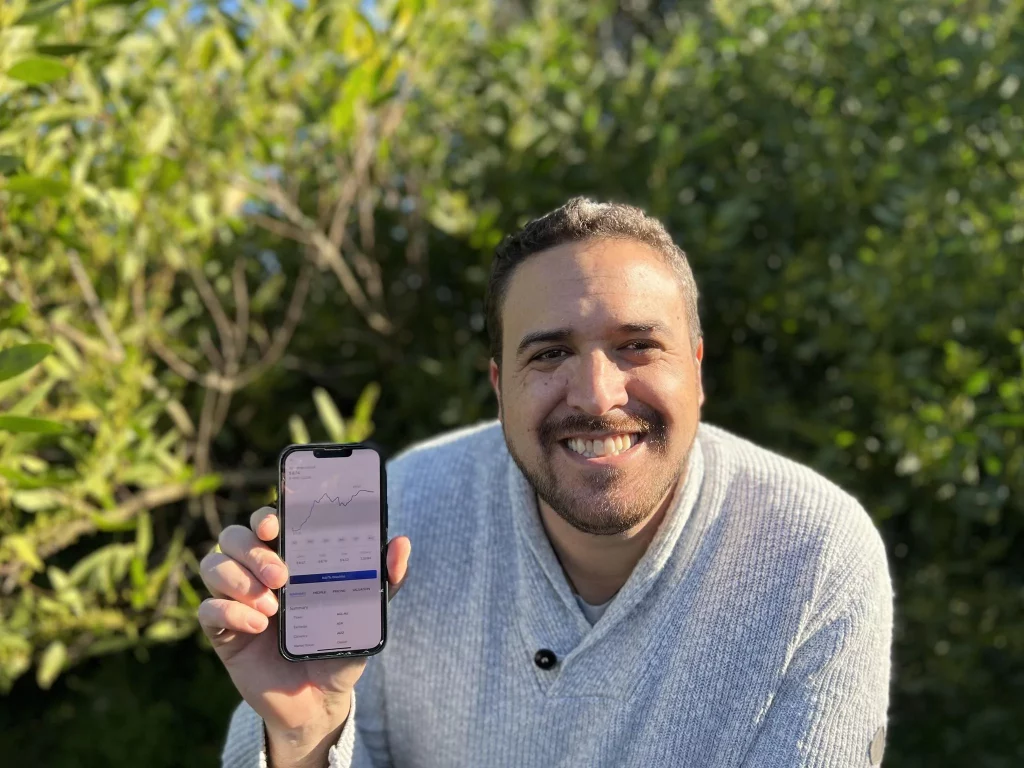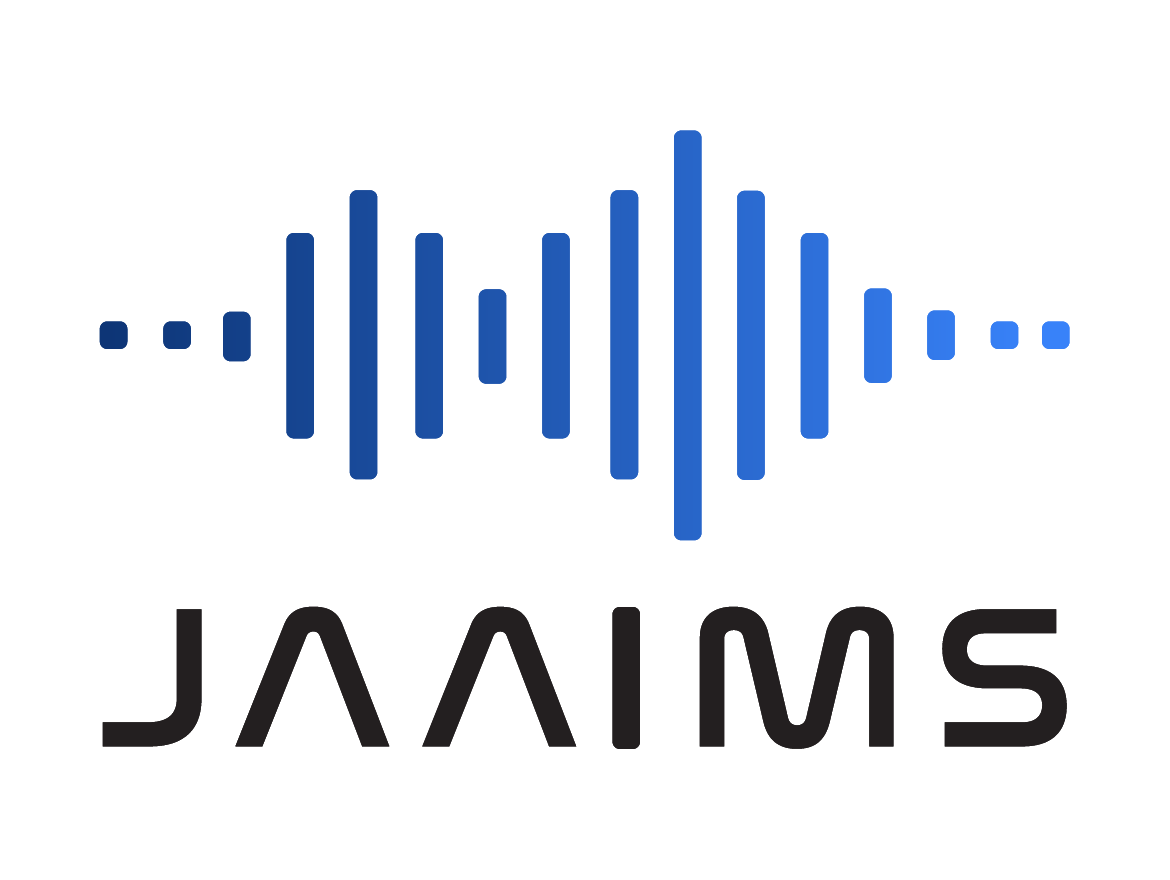Published on 16 June 2022
Written by Chris Griffith, The Australian
Artificial intelligence will beat the human brain when trading stocks, says Jaaims founder Tui Eruera.

Artificial intelligence will beat the human brain when trading stocks. That’s the claim of Australian firm Jaaims which has offered full AI stock trading since 2020.
“Virtually every industry has been disrupted by AI, automation and robotics, and that will become a big part of the future,” said Jaaims founder Tui Eruera.
“In investing AI removes the human bias associated with making investment decisions. The decisions are based on your data and logic.”
Jaaims handles more than 1000 big-cap stocks in Australian, UK, the US and German markets.
Eruera said AI trading was different to rules-based or algorithmic trading systems that have been available for decades.
Rather than following predetermined rules, AI and machine learning (ML) examine each stock’s behaviour in minute detail over preceding years to build a predictive model around its future using technical analysis, market sentiment and public news.
“For a human to analyse a stock would probably take days,” Eruera said. “We do that in seconds.”
Eruera is not alone in his confidence about AI-directed investment. Hedge funds began embracing AI and machine learning several years ago and it seems they have achieved some success.
Eruera’s aim was to bring this big-end-of-town success to everyday retail investors. “We’ve brought that technology to retail investors, where previously it was really only available to large banks like Charles Schwab, Merrill Lynch, JP Morgan, etc.”
Jaaims’ AI system takes about 10 minutes to analyse the 1000 stocks on offer at any time. It has mastered around 120 strategies that it might apply to different sectors and conditions.
The AI system also analyses about 250 data feeds including stockmarket news from exchanges, and social media feeds to understand sentiment within sectors, industries and markets.
“It essentially learns from movements and economic factors, many things that happened in the past and then applies the strategy for today. It means the strategy that it used yesterday might not be the same one it’s using today.”
Jaaims began operating in 2018 and the company spent 2½ years developing and testing the AI training modules before its June 2020 launch to the public.
The AI analysis system was originally built in house. It used some services from IBM’s Watson in the early days. “IBM was really the only solution in the market at that time, but since then, AWS and a few others have released options that work faster.”
Initially it took about six weeks for machine learning to glean the past performance of a stock being added to the Jaaims’ system. “We’ve got that down to around a week and a half,” Eruera said.
He said it was hard to adapt the AI model to small caps so Jaaims concentrates on bigger stocks. Users build a portfolio and have Jaaims decide stock entry and exit points, or they can use one of Jaaims’s automated portfolios.
While $6 a trade seems small, AI potentially could make hundreds of trades costing thousands in brokerage fees. When asked about this, Eruera said the average stock hold time was about 16 days. Jaaims commonly held stocks for 100 days in the current bear market.
He said Jaaims had made some losses but great successes too. The average return in 2020 was 20.2 per cent, in 2021 8 per cent, and 2.02 per cent this year so far. Its smart portfolio introduced in June 2020 has returned 30.35 per cent. Jaaims scales down trading in poorer market conditions.
Eruera said the business would launch new smart portfolios including one in agriculture, food and fertiliser equities. He said smart portfolios were more active than ETFs as the AI was actively buying and selling stocks.
Jaaims is based in Sydney, has 18 staff and about 5000 customers. Eruera said the company was on track to be cash flow positive in three months.
It partners with Interactive Brokers and Saxo Markets, which perform the trades; Eruera said this would expand to CMC Markets from around July.
Eruera said AI couldn’t predict the impact of corruption and insider trading, but Jaaims was regularly ahead of the game. When Covid-19 struck, Jaamis exited the majority of its positions by February 16, 2020, and didn’t make another trade for 2½ months. This week Jaaims exited the last two stocks it was trading, given the poor trading conditions.
CMC Markets director of stockbroking Andy Rogers said what happened in the institutional space eventually arrived in the retail space. “Some of the world‘s biggest hedge funds are using AI and have been for several years, so I expect it will come to retail. It‘s certainly not there yet on any scale, but it’s starting to percolate down.”
He said financial services were “a little behind” in embracing AI compared to non financial services, but “it’s certainly a massive opportunity”. But AI would be judged on its success in trading, just as other technologies were. He said the success of machine learning depended on the quality of the current and historic data available to it.
“I think there needs to be an element of caution for the retail investor. You can’t just leave it to a machine and hope for the best. You’ve got to test what you’ve got and look at it carefully.”
He said AI investing platforms might suit retail investors who don’t take personal advice before investing and may not be prepared to pay for it. There remained an ongoing place for human generated investment with “a personal touch”. Some retail investors may prefer a hybrid solution of using AI together with their own fundamental research.
There are contrary views about AI trading. Dale Gillham, chief analyst of retail investor training firm Wealth Within, said the market wasn’t as mechanical and mathematical as people made out.
“A lot of people are interested in trading apps or artificial intelligence or algorithms because they don’t have to do anything and they hope to make money, but what I constantly see is people that use them essentially, after a period of time, they come and tell me they’ve lost money out of them or they’ve caused issues when the markets are not doing what’s expected.”
Gillham said automated trading systems were great for generating brokerage fees. “It’s more about the app making money than the person using the app making money.
“When I’m teaching people, I say eight to 12 stocks at any one time, and you don’t need to be turning them over. Individuals don’t need to have lots of trades going on.”
Yet investors and traders have embraced automated trading systems. At least 70 per cent of Wall Street trades are automated, sometimes leaving human participants disadvantaged.
High frequency trading can make retail trading volatile. And last week, CNN reported that retail investors are losing money to automated market wholesalers that skim pennies off each transaction in so-called “payments for order flow”. The agency overseeing Wall Street proposed major changes.
Jaaims offers Freemium ($0), Standard ($99) and Professional ($199) monthly plans. You can trade up to 50 stocks simultaneously and up to $100,000 in funds on the freemium plan.
Chris Griffith
Chris is one of Australia’s most experienced technology reporters, with an involvement in the computer industry spanning almost 50 years. He learned to program in the late 1960s, studied computer science in the… Read more
